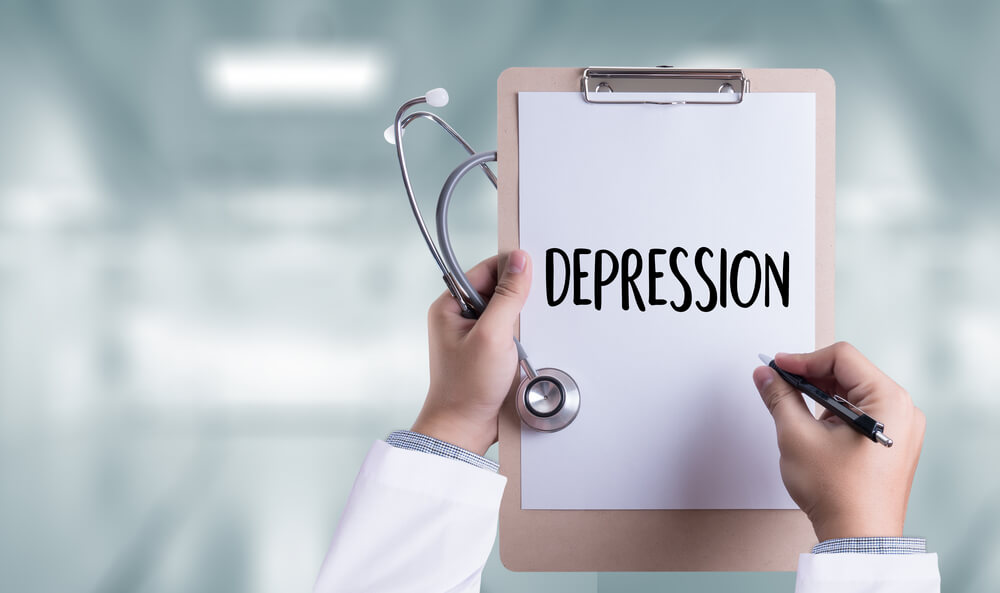What is depression?
Depression is a common mental health condition. It is characterised by low mood, feelings of hopelessness, losing interest in things which previously brought a sense of enjoyment, and feeling tearful.
Depression can also manifest in physical ways. Sleeping poorly, feeling tired, experiencing aches, pains, a diminished appetite, and decreased libido can all be impacts of depression. The symptoms range from mild to severe. In mild cases, a persistent low mood may be the cause, while severe cases may result in suicidal feelings or a desire to self harm [1].
Sometimes the causes of depression can be obvious, such as a bereavement or a traumatic event. Other times there might be no known cause, although family history could be the reason. Whatever the reason, once a person has identified they may be depressed, they should go and see their GP.
What treatments are available?
There are a plethora of treatments for depression that a doctor can prescribe, from talking therapies to pharmaceutical medications to exercise and more. Sometimes the GP may recommend one treatment or a combination of treatments but they will help support patients and signpost them to services which can bolster their support network.
The good news is that depression is among the most treatable mental health disorders. Between 80% and 90% percent of people with depression eventually respond well to treatment. Almost all patients gain some relief from their symptoms [2].
Treatment Resistant Depression
For those with major depressive disorder, however, treatment can be harder to find. With up to one third of adults with the condition failing to respond to treatment, new avenues and treatments are being sought.
“Although there is some disagreement as to how to define treatment-resistant depression, a patient is generally considered to have it if the individual hasn’t responded to adequate doses of two different antidepressants taken for a sufficient duration of time, which is usually six weeks,” explains Jaskaran Singh, M.D., Senior Director of Neuroscience, Janssen Pharmaceuticals [3].
The idea that depression may have causes currently unknown by scientists is one theory researchers are exploring to try and combat resistance to treatment.
“One of the more modern theories is that depression creates inflammation in the brain, or that inflammation in the brain creates depression. Traditional antidepressants only affect neurotransmitters, so this may be why some patients don’t respond to them.” says Alexander Papp, M.D., a psychiatrist at UC San Diego Health [4].
Whether or not this is the case, researchers are still trying to find solutions to Treatment Resistant Depression.
The Potential of Cord Blood Therapy
One study using umbilical cord blood cells delivered promising results. The study administered concentrated umbilical cord blood cells at a dose of 250 million cells via weekly injections over 4 weeks with 1 week intervals, to women who suffered with Treatment Resistant Depression. The results were tested against a control group who received a placebo.
The study found that the therapeutic potential of umbilical cord blood cell concentrate can be used to overcome treatment resistance formed in depressive patients [5]. Other studies have also found that cellular therapies may have a role in combating Treatment Resistant Depression [6] [7].
These studies give hope for finding new treatments. With the help of umbilical cord blood cells, those suffering from Treatment Resistant Depression may one day find relief from the debilitating illness affecting their day to day lives.
If you think you may be suffering from depression please speak to your GP.
Organisations who can help if you need someone to talk to:
Samaritans: Call 116 123 – It’s FREE and available 24/7
Shout 85258: text SHOUT to 85258 – It’s FREE and available 24/7
CALM: Call 0800 58 58 58 or use their webchat here. The helpline and webchat are both open 5pm to midnight, 365 days a year.
FIND OUT MORE, REQUEST YOUR WELCOME PACK TODAY
All you need to know to make an informed decision.
Provide your contact details to request:
– Complete Welcome Pack and Parent’s Guide
– Information via email
– Contact from our specialist advisors









